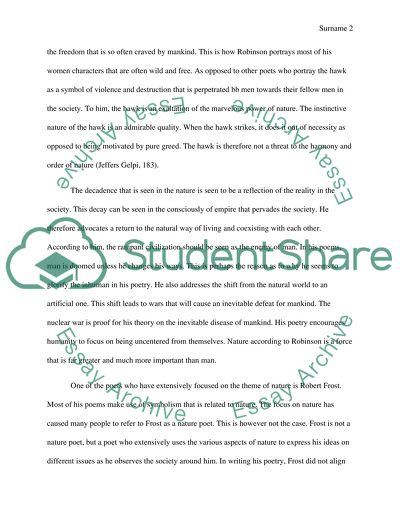Cite this document
(“Nature in poetry Research Paper Example | Topics and Well Written Essays - 2750 words”, n.d.)
Retrieved from https://studentshare.org/literature/1596307-nature-in-poetry
Retrieved from https://studentshare.org/literature/1596307-nature-in-poetry
(Nature in Poetry Research Paper Example | Topics and Well Written Essays - 2750 Words)
https://studentshare.org/literature/1596307-nature-in-poetry.
https://studentshare.org/literature/1596307-nature-in-poetry.
“Nature in Poetry Research Paper Example | Topics and Well Written Essays - 2750 Words”, n.d. https://studentshare.org/literature/1596307-nature-in-poetry.


